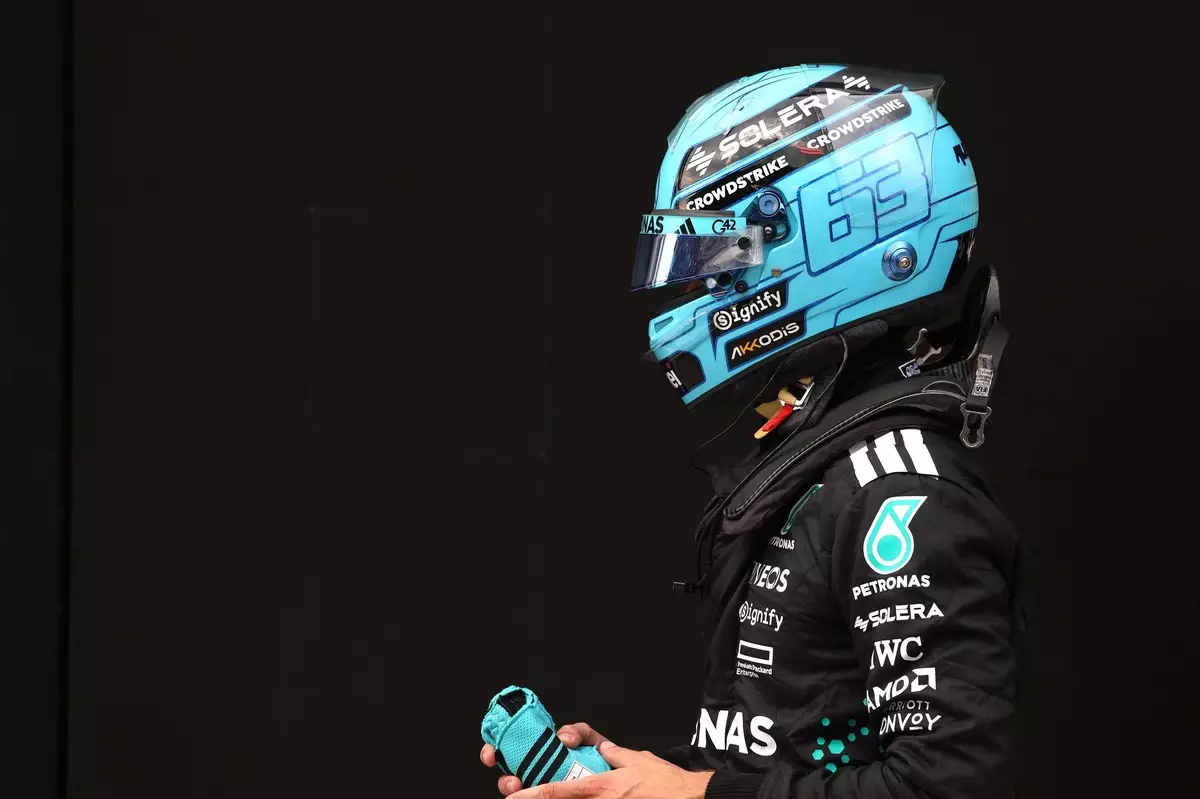In the high-octane environment of Formula 1, contract negotiations often resemble high-stakes poker, with teams and drivers racing to finalize deals amid intense speculation and media scrutiny. Yet, George Russell’s recent stance demonstrates a rare poise—a deliberate decision to pause rather than rush. While many of his peers succumb to the allure of early signings for security or media attention, Russell’s refusal to be pressured reflects a mature understanding of his own value and timing. This strategic patience is not merely about delaying paperwork; it underscores a broader philosophy of career management in a sport where timing can make the difference between a championship contender and a forgotten footnote.
Such an approach is particularly insightful given the current F1 landscape. Rumors of Max Verstappen’s potential move to Mercedes created an atmosphere of uncertainty, reigniting debates about driver stability and team loyalty. Yet, Russell’s stance remains clear: he prefers to wait rather than be swept up in speculation. This patience indicates confidence not only in his abilities but also in his relationship with Mercedes. Instead of reacting impulsively to external pressures, Russell chooses to focus on performance and his mental well-being, emphasizing quality over speed in the negotiation process.
The Significance of Building a Lasting Partnership
Russell’s statements reveal that he views his relationship with Mercedes as a long-term project worth nurturing carefully. His insistence on waiting until the “right moment” to sign emphasizes a desire for a mutually beneficial contract, rather than a rushed agreement driven by temporary circumstances. With his deal expiring at the end of 2025, he recognizes that the forthcoming seasons are pivotal for his career trajectory—especially with regulations on the horizon that could alter the competitive landscape.
This deliberate approach demonstrates a strategic mindset uncommon among drivers whose futures often hinge solely on immediate results. Russell’s decision to prioritize stability and negotiations aligned with his long-term ambitions exemplifies his maturity and professionalism. It sends a clear message: he is not merely motivated by securing the next contract but by ensuring that the terms fully reflect his growth and potential contribution to the team. For a driver still relatively early in his prime, this sense of strategic patience signals an understanding that sustainable success is built on more than just winning races—it’s about creating the right environment to excel over the coming years.
Confidence Rooted in Performance and Potential
Russell’s recent form bolsters his case for negotiations on his terms. His achievements—winning four grands prix and consistently delivering strong performances—highlight his rising stature within Mercedes and Formula 1 at large. Yet, he’s aware that these successes need to translate into sustained championship contention, which requires patience and a calculated approach to his contractual future. His fourth place in the championship standings signals he’s on the cusp of becoming a podium and title contender, provided the right car and circumstances align.
Mercedes team principal Toto Wolff’s unwavering support underscores how highly Russell is valued within the team. Wolff’s comments about Russell “having good cards” and his consistent performance since 2018 reflect a belief that Russell’s time is now, but that this “time” should be marked by patience and strategic decision-making. This confidence from leadership is a powerful endorsement, further validating Russell’s approach—it suggests that success is not merely measured by immediate signings but by the strength of the relationship built over years.
The Power of Strategic Patience in F1’s Unpredictable Climate
In an era where driver moves are often dictated by contractual deadlines or sudden opportunities, Russell’s approach challenges conventional wisdom. His willingness to wait illustrates a belief that the best deals, much like the best race strategies, are often those that are well-timed and thoughtfully executed. By avoiding hurried decisions, he preserves leverage, signaling that he is a valuable asset whose commitments are contingent on the right terms.
This patience also reflects a broader understanding that Formula 1 is a dynamic sport, where the tide can shift rapidly. With upcoming regulation changes, his focus on securing favorable conditions for the next phase of his career indicates foresight and strategic planning. It suggests that he views his contract extension not simply as a necessity but as a vital step in positioning himself for future successes—whether that’s a championship challenge or a stable environment to grow.
In the grander scheme, Russell’s stance exemplifies the importance of mental resilience and strategic patience in professional sports at the highest level. His calm demeanor amidst rumors and pressures demonstrates a level of self-awareness and confidence that is truly rare. Rather than succumbing to the urgency that often characterizes F1 negotiations, he exemplifies how patience and deliberate action can serve as powerful tools for career longevity and success.

